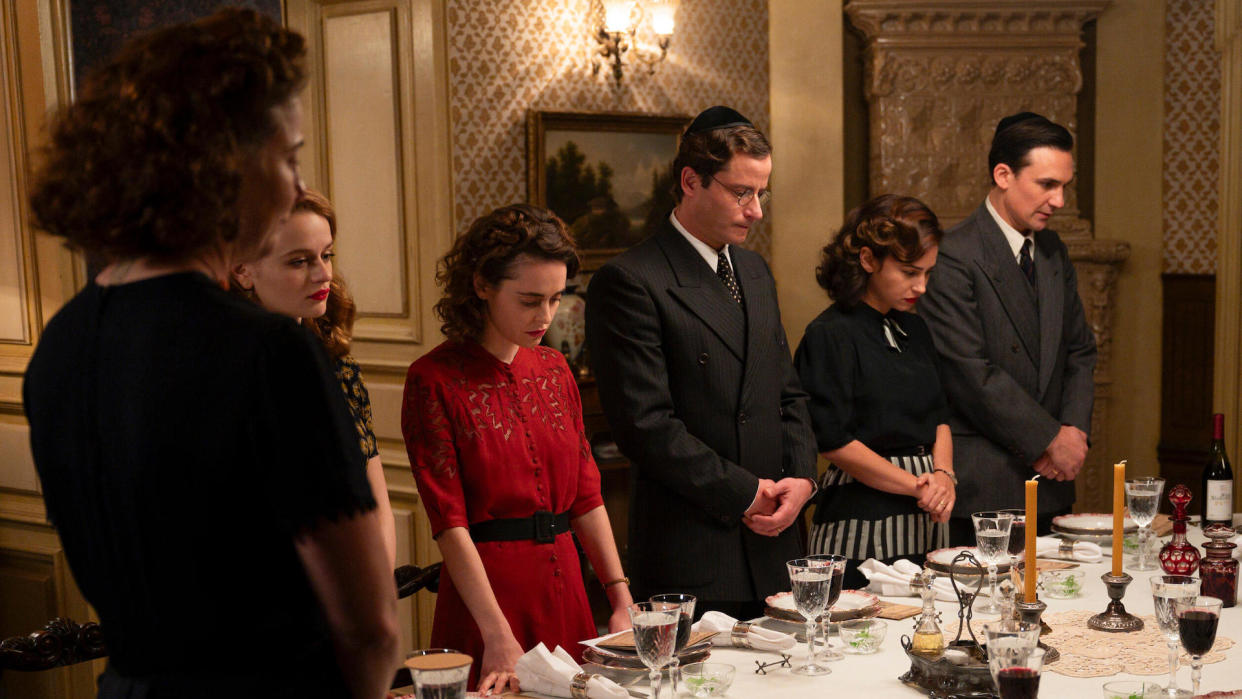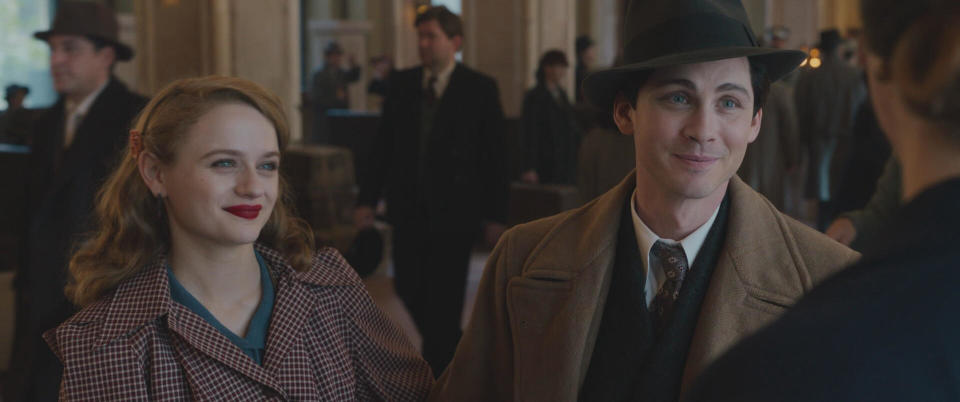‘We Were the Lucky Ones’ Review: A Sensitive, Moving Portrayal of One Family’s Holocaust Journey

“We Were the Lucky Ones” has its warning built into the title. The Hulu series based on the book by Georgia Hunter and adapted by Erica Lipez is about how one family survived and separated during the Holocaust, all of it underscored by that title — this is what they went through, the horror they witnessed and endured, the sadness that befell them, and they were lucky.
The series kicks off in Radom, Poland before the War, with the Kurc family: Siblings Halina (Joey King), Addy (Logan Lerman), Genek (Henry Lloyd-Hughes), Jakob (Amit Rahav), and Mila (Hadas Yaron) — and their parents, Sol (Lior Ashkenazi) and Nechuma (Robin Weigert). The Kurcs are close-knit, their home echoing with overlapping voices and laughter at the holidays, and they already feel the pangs of missing Addy, who lives in Paris.
More from IndieWire
War creeps in, but at first, life continues. Lipez limits the show’s scope exactly right, staying with the Kurcs as their day-to-day begins to change, almost imperceptibly at first. Urgency builds with each episode, and the characters have no choice but to develop armor. They adjust their behavior and body language, they develop survival instincts they didn’t have or imagine at the outset. War turns even civilians into soldiers, and the immediacy of that truth radiates throughout “We Were the Lucky Ones.”
The size of the core cast (including the siblings’ partners and eventually children) doesn’t simplify the work for any of these actors, all of whom commit not only with performance but with an apparent empathy. King stuns as the young Halina becomes skilled at lying, adapting, and running. It’s she who delivers one of the series’ most potent lines, when Halina faces separation from husband Adam (Sam Woolf) in later episodes: “I cannot bear not to know our children.”

Each member of the ensemble becomes the custodian of their character’s specific trauma; Jakob is a photographer who has to work for the Germans, Genek ends up enlisted in the army, Mila fights to protect her child. As Addy, Lerman is siloed from the other siblings for almost the entire series, but never waivers in his portrayal of someone sustained by hope and eventually in the haze of grief. The branching storylines depict wartime in Poland, France, Siberia, Senegal, Morocco, Brazil, and Palestine over the course of eight episodes.
And again, no matter the scale of it, “We Were the Lucky Ones” never loses its focus. Only a handful of scenes use background actors to demonstrate how many Jewish people were regularly lined up, questioned, captured, or killed. There is hardly any mention of Nazis or Hitler or visuals of Swastika. Other than a few mentions of Germany itself, those entities don’t matter so much as the constant violence of one human being against another. In the show they are “these people,” “the officers,” occasionally “sadists” or “animals” — broad terms that disgrace the oppressors just as they systematically demean the oppressed.
Neasa Hardiman and executive producers Thomas Kail and Amit Gupta direct the series (Jennifer Todd executive produces along with Kail and Old 320 Sycamore, Adam Milch executive produces with Gupta), which releases weekly after the March 28 premiere of three episodes. It’s not an easy show to watch or reality to reckon with, but history is never as neat (or as distant) as we’d like. As much as “We Were the Lucky Ones” tells an extraordinary story of endurance and triumph, the show never loses sight of suffering, and of what kind of person someone has to be to let that happen.
Grade: B+
The first three episodes of “We Were the Lucky Ones” are now streaming on Hulu, with new episodes weekly.
Best of IndieWire
Sign up for Indiewire's Newsletter. For the latest news, follow us on Facebook, Twitter, and Instagram.
